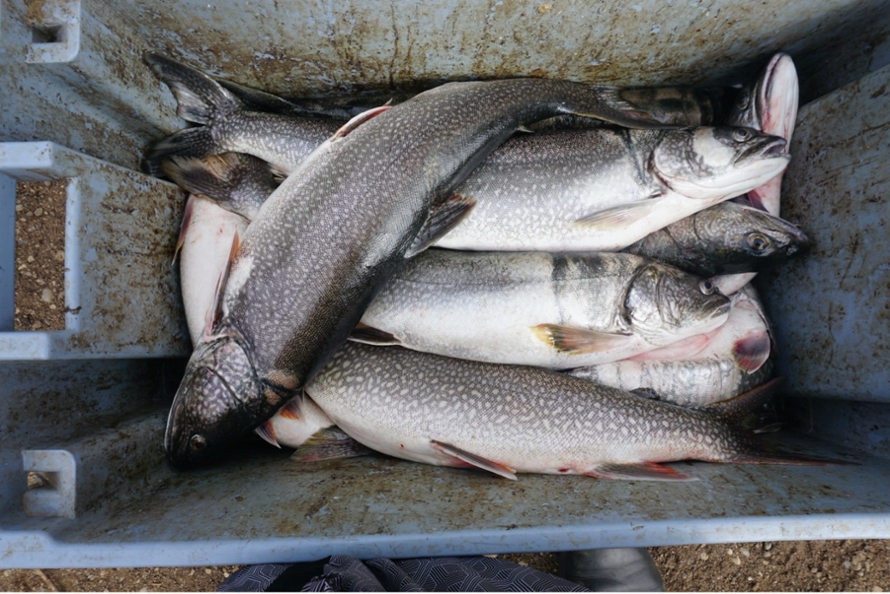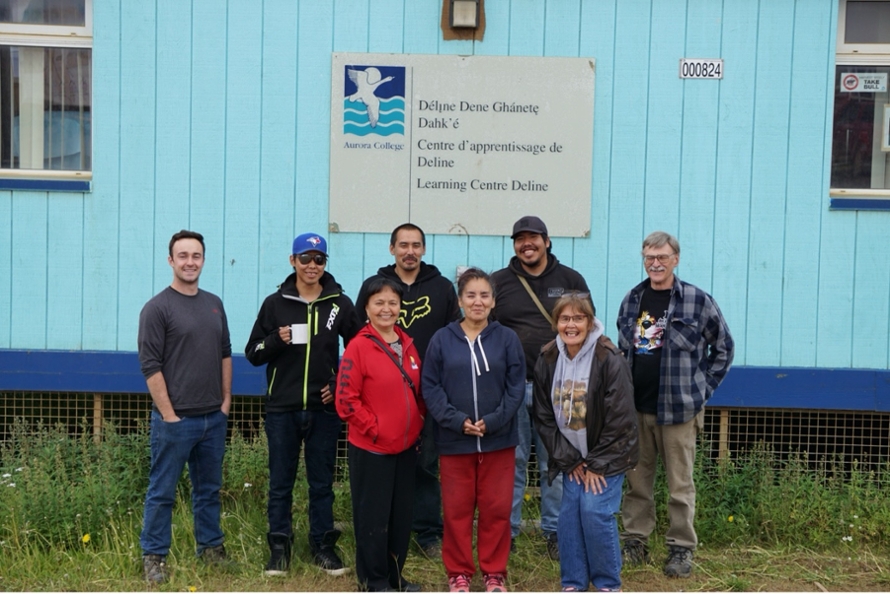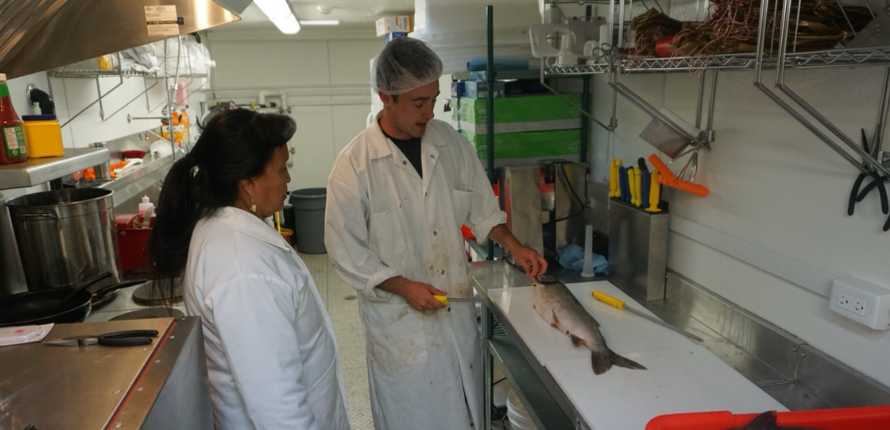We use cookies on this site to enhance your experience.
By selecting “Accept” and continuing to use this website, you consent to the use of cookies.
Search for academic programs, residence, tours and events and more.
Evaluating a food processing trailer facility and a country food processing training course in Délı̨nę has helped the community understand how the facility can increase food access.

Connor Judge (University of Waterloo Master's student) led an evaluation project in Délįne in 2019. The goal of the project was to understand how a food processing trailer facility can increase food access for community members by utilizing natural resources that have not been traditionally harvested, like muskox.
To understand the potential of the trailer facility, a pilot country food processing training course was held with 6 participants over two weeks in the summer of 2019 at the trailer facility and Aurora College Délįne Community Learning Centre.
The country food processing training was a coordinated effort between the Délįne Got’ine Government (DGG), Aurora College, researchers from the University of Waterloo and Wilfrid Laurier University, and Palace Hillside Farm Group, a private consulting firm.
The training presented an opportunity for the DGG to learn about possibilities for increasing food access for community members using the trailer facility.

Country food processing training course participants (2019)
The goal of the evaluation project was to understand the satisfaction of the trainees who attended the training course, if the training achieved its objectives and if the trailer facility is viable to teach the country food processing course in. Interviews, surveys and observation were used to answer these evaluation questions.
An open house was held at the beginning of the second week of the country food training course. Approximately 70 community members attended the event. Community members had the opportunity to learn about the training course and try some of the food being prepared.
Surveys were employed at the beginning of the training, at the end of the training, and at the community open house event. Interviews were conducted with every trainee for approximately one hour at various times throughout the course.
17 community members participated in a survey at the open house. The key findings from this survey are that 82% of participants had a positive experience trying muskox, that 76% of participants are likely to hunt muskox after trying the samples, that only 23% of participants reported always having the tools required in harvesting, and that only 23% of participants reported always having an appropriate space to process traditional food.
The trainees identified a variety of different ways that the trailer facility could be used to benefit the community, including: a service for hunters, a tool for teaching youth, a tool for the community to use, and a commercial meat operation.

A participant learning how to filet fish
The evaluation results showed that the trainees were satisfied with the course, 7 out of the 8 program objectives were achieved, and the trailer facility was found to
be an inadequate place to host the training given its limited size and condition. For example, the trailer is missing a portable water supply and a ventilation hood, creating challenges to follow food safety and work safety guidelines. Regardless, there is still potential for the trailer facility to benefit the community.
Trainees identified potential uses for the trailer: